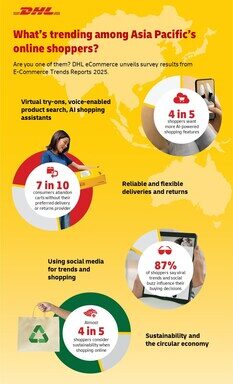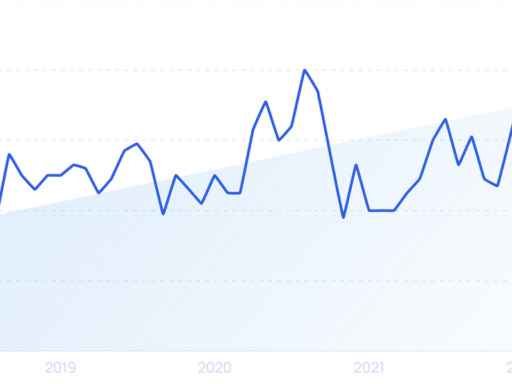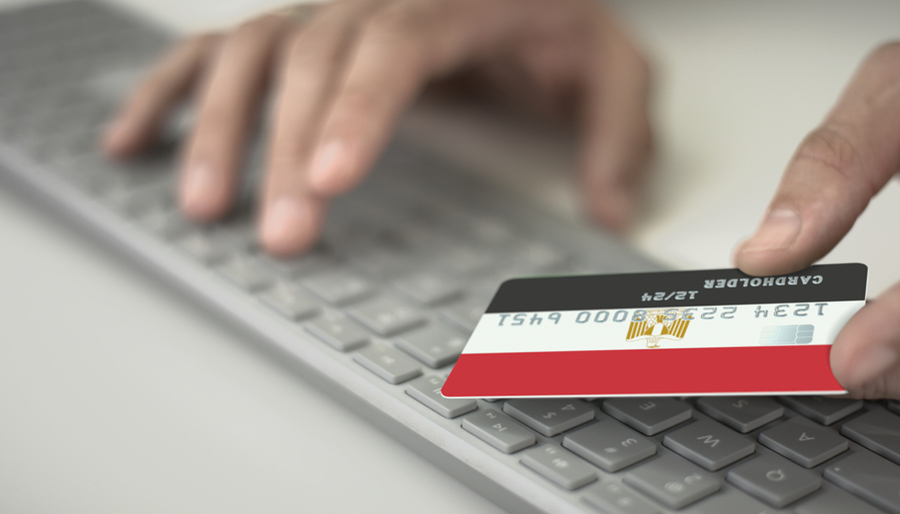
Egypt has seen a remarkable increase in online shopping and digital payments in what was – until recently – a mostly cash-based society. A new survey from Checkout shows how the percentage of people who shop online daily has increased more than threefold over the past five years.
Egyptians have been become big online shoppers in recent years, it turns out. The study, released annually since 2020, shows dramatic changes in consumer habits, with ecommerce championing not just in Egypt, but indeed across the MENA region as a whole.
Only 4% of Egyptians shopped online daily in 2020, a figure that reached 15% this year. Weekly online shopping increased from 8% to 15% over the same span of time. More consumers than ever now look to digital platforms for their routine purchases.
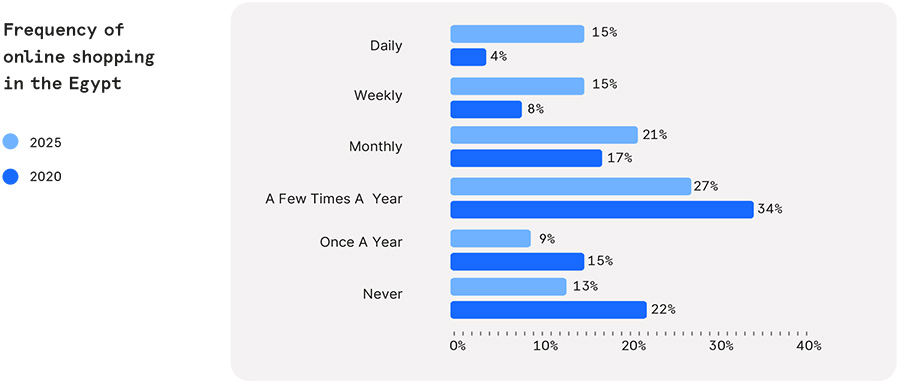
Source: Checkout.com
This shift towards embracing ecommerce shows consumers in Egypt now have greater trust in online retailers and that the infrastructure for delivery is improving. This shift signals a broader lifestyle change as digital purchases become the new default for everyday needs.
“The extraordinary increase in online shopping is a direct reflection of the rapid acceleration in online transactions and consumer demand in the region,” said Remo Giovanni Abbondandolo, MENA general manager at Checkout. “This growth not only highlights the transformation the MENA region has experienced, but also signals a comprehensive lifestyle change as digital becomes the new default for everyday needs.”
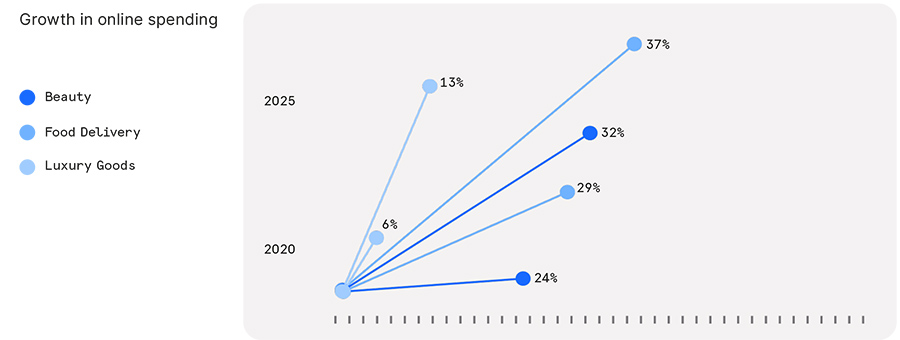
Source: Checkout.com
Overall, MENA consumers spend most on food delivery services (47%), followed by clothing and electronics. This increase in spending on everyday items is fueled by improved access to technology, growing trust in digital payments, and the rise of localized ecommerce solutions.
There is also a growing appetite for the finer things: Online spending on luxury goods in Egypt has grown 13% and beauty products by 32%.
New payment methods
MENA consumers can be picky about their preferred payment methods. The survey found that 24% of consumers would abandon a purchase on a website if it did not offer their preferred payment method.
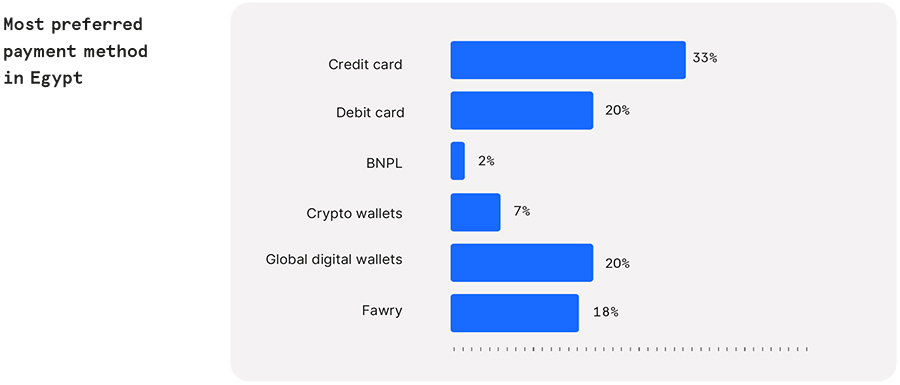
Source: Checkout.com
A lot of consumers in Egypt have begun using digital wallets, likely attracted by the convenience, security, and speed that they provide. In fact, the use of digital wallets goes beyond just paying for goods and services, they are also used frequently for money transfers and paying friends and family.
Rise in fraud
Along with the rise in digital payments has come an increase in online fraud, particularly schemes utilizing artificial intelligence (AI) and deepfake technology. With an increasing number of consumers making payments online in Egypt, there has been an uptick in the volume and sophistication of fraud.
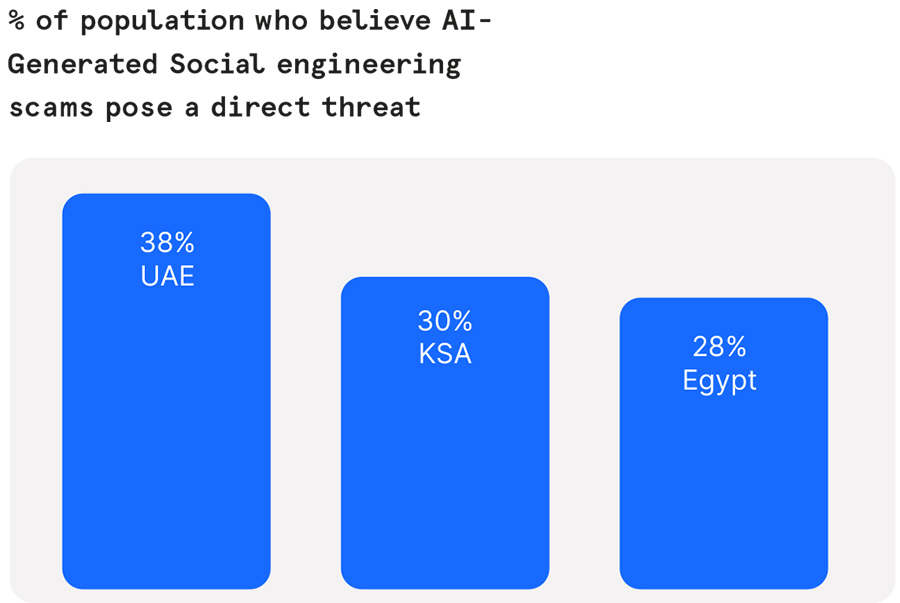
Source: Checkout.com
While specific deepfake statistics for Egypt are scarce, regional trends suggest a growing need for attention. The survey from Checkout shows that 28% of Egyptian consumers see AI-generated social engineering scams as a potential threat. So while fraud is on the rise, awareness is also likely growing.
Egypt’s rapid digital adoption contributes to its exposure to AI-enabled fraud. Global credit card fraud costs reached $32.3 billion in 2021, and Egypt has been identified by the Arab Monetary Fund as vulnerable due to the rapid increase in mobile payments.
In response to these developments, countries in the MENA region are working to enhance security infrastructure, develop advanced fraud detection tools, and invest in public awareness initiatives.
Looking forward
The outlook for digital commerce in Egypt in the years to come is most likely to be an upward trajectory. According to the survey, 58% of Egyptians are planning on spending more on online shopping with the next year.
Overall, MENA markets are often seen as among the most forward-leaning in both adoption and appetite, meaning that new products and services abound. With a relatively young population and a growing internet-savvy consumer base, Egypt is very likely to be a big market for ecommerce and digital payments.
“When we step back and reflect on how cash-based much of Egypt was just years ago, the progress is nothing short of remarkable,” said Abbondandolo.



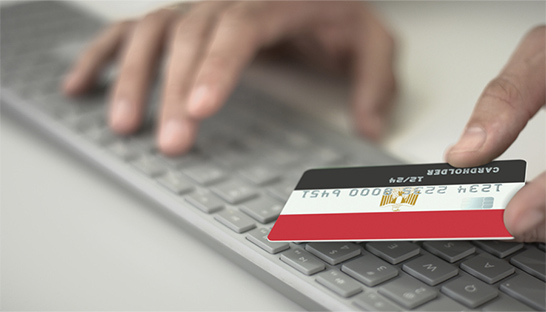
![What is Social Commerce? Stats & Tips to Know [2025]](https://www.dotdesh.com/wp-content/uploads/2025/11/social-commerce_final-512x384.png)
